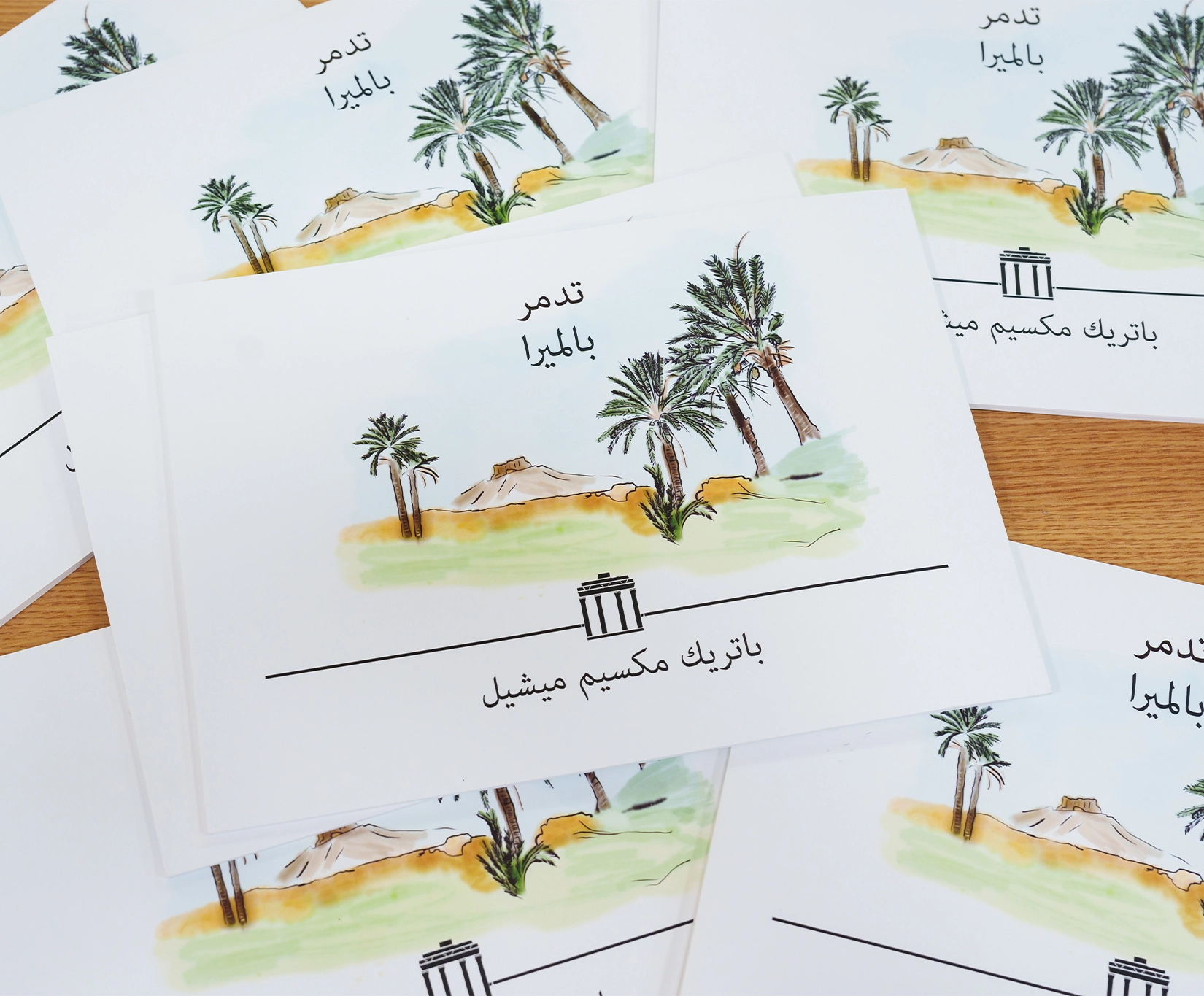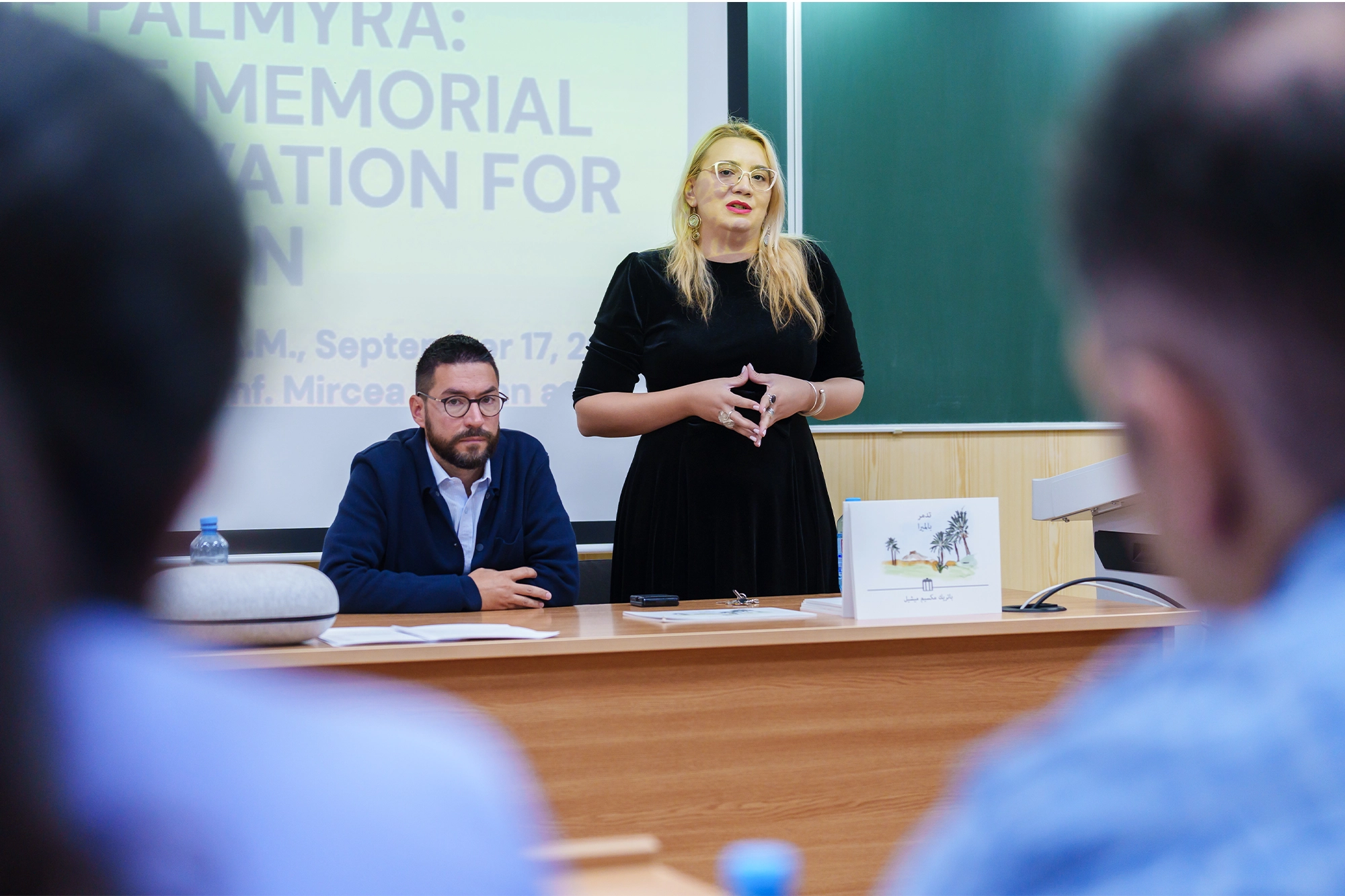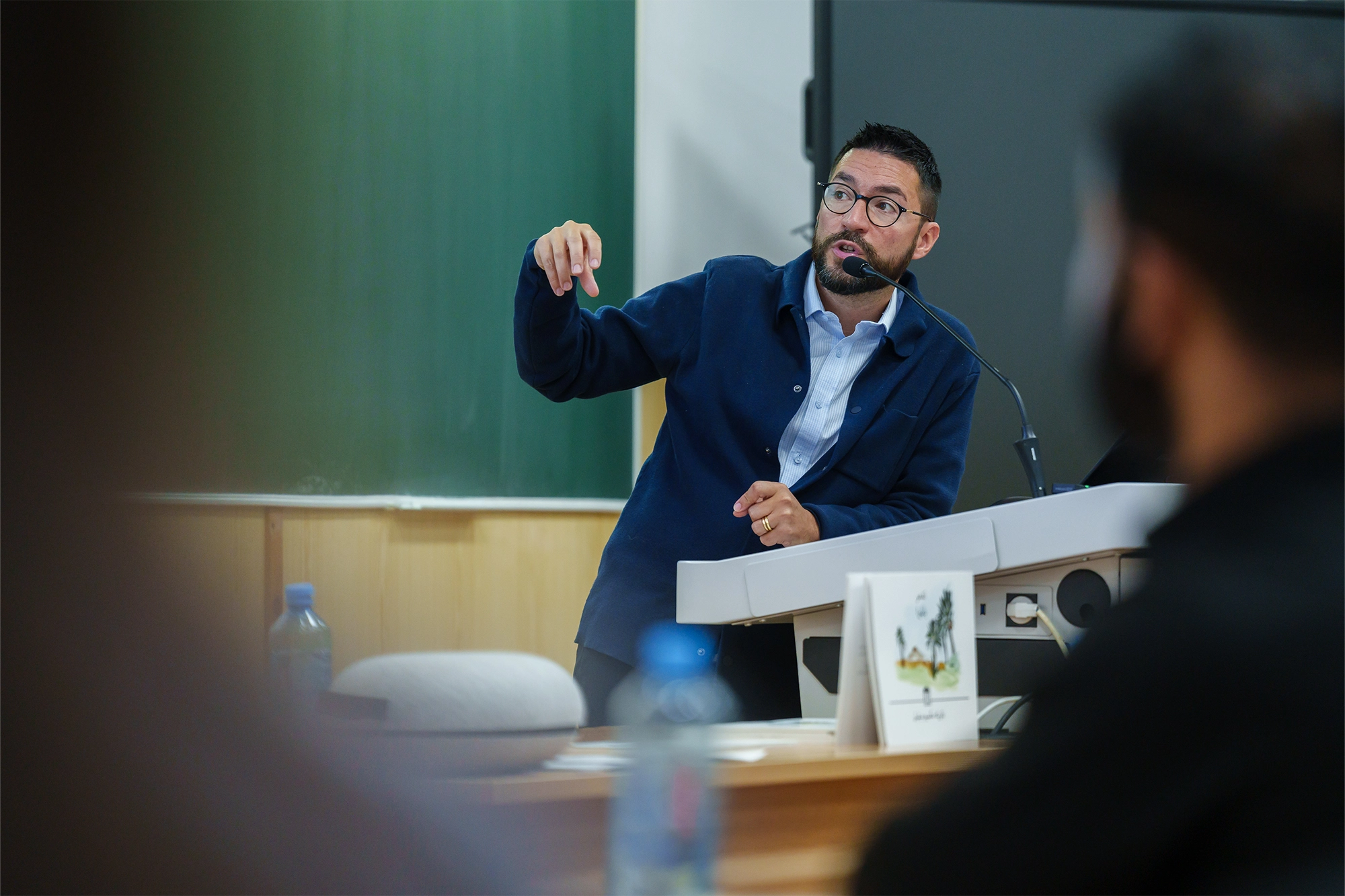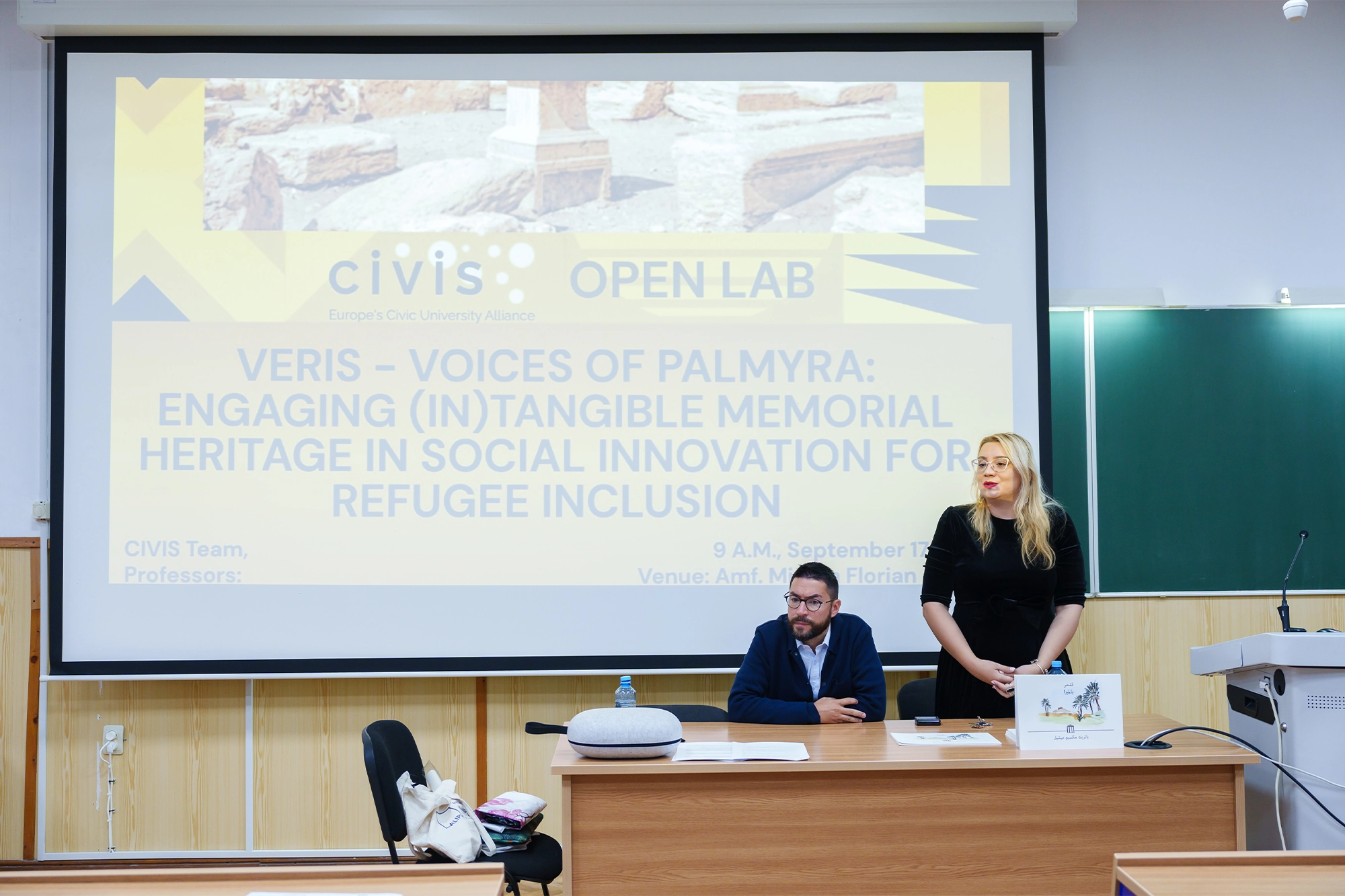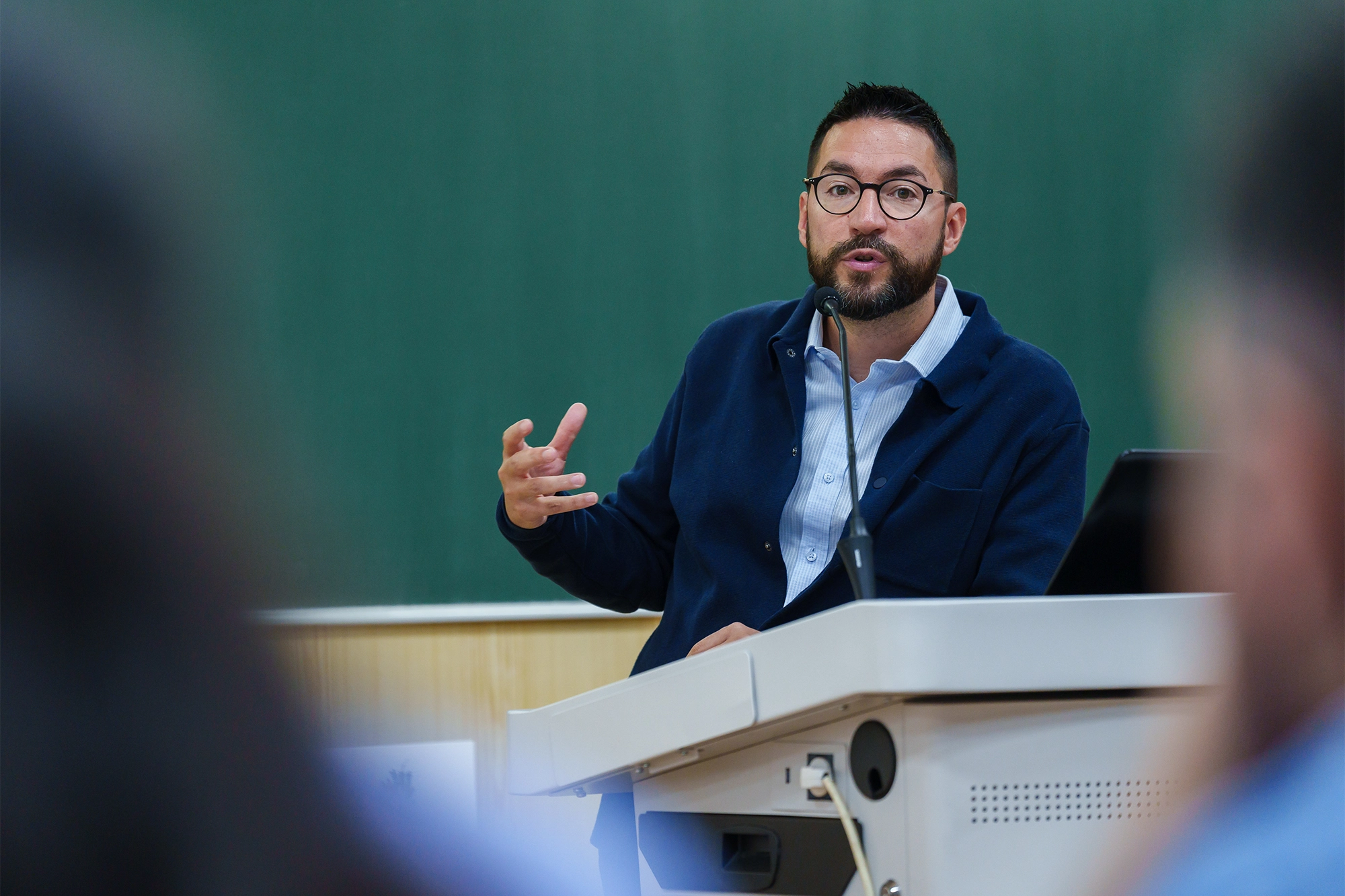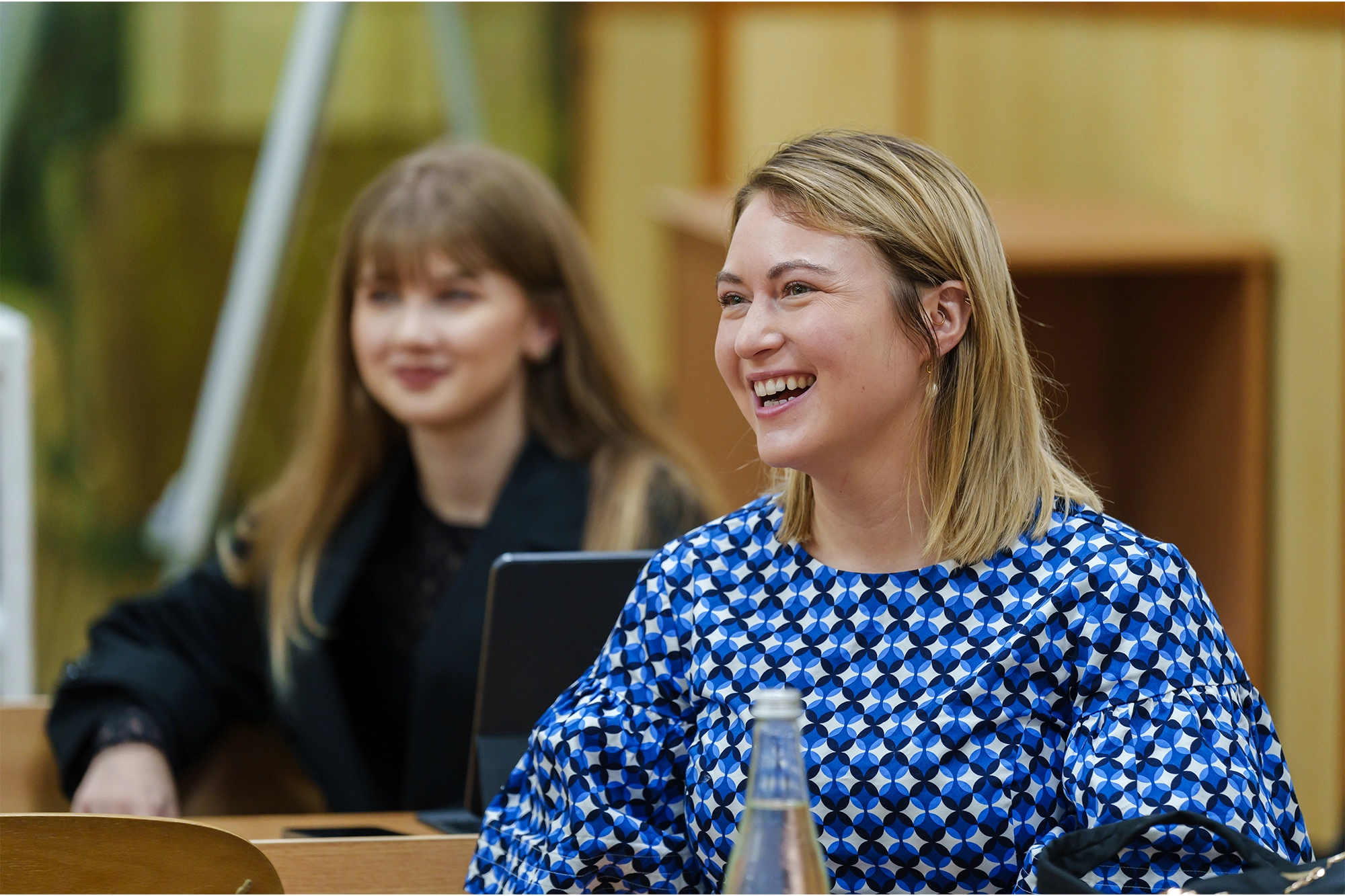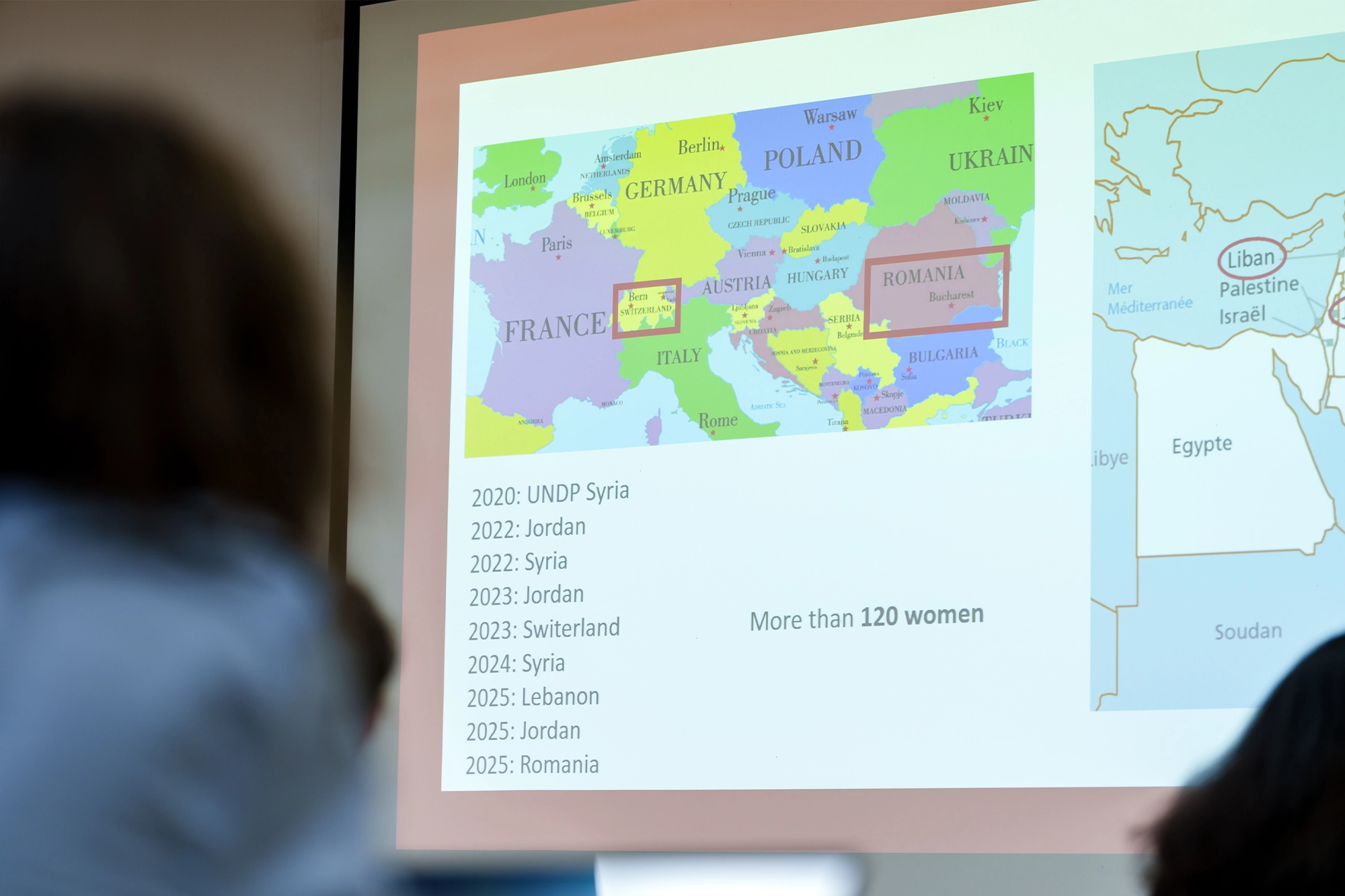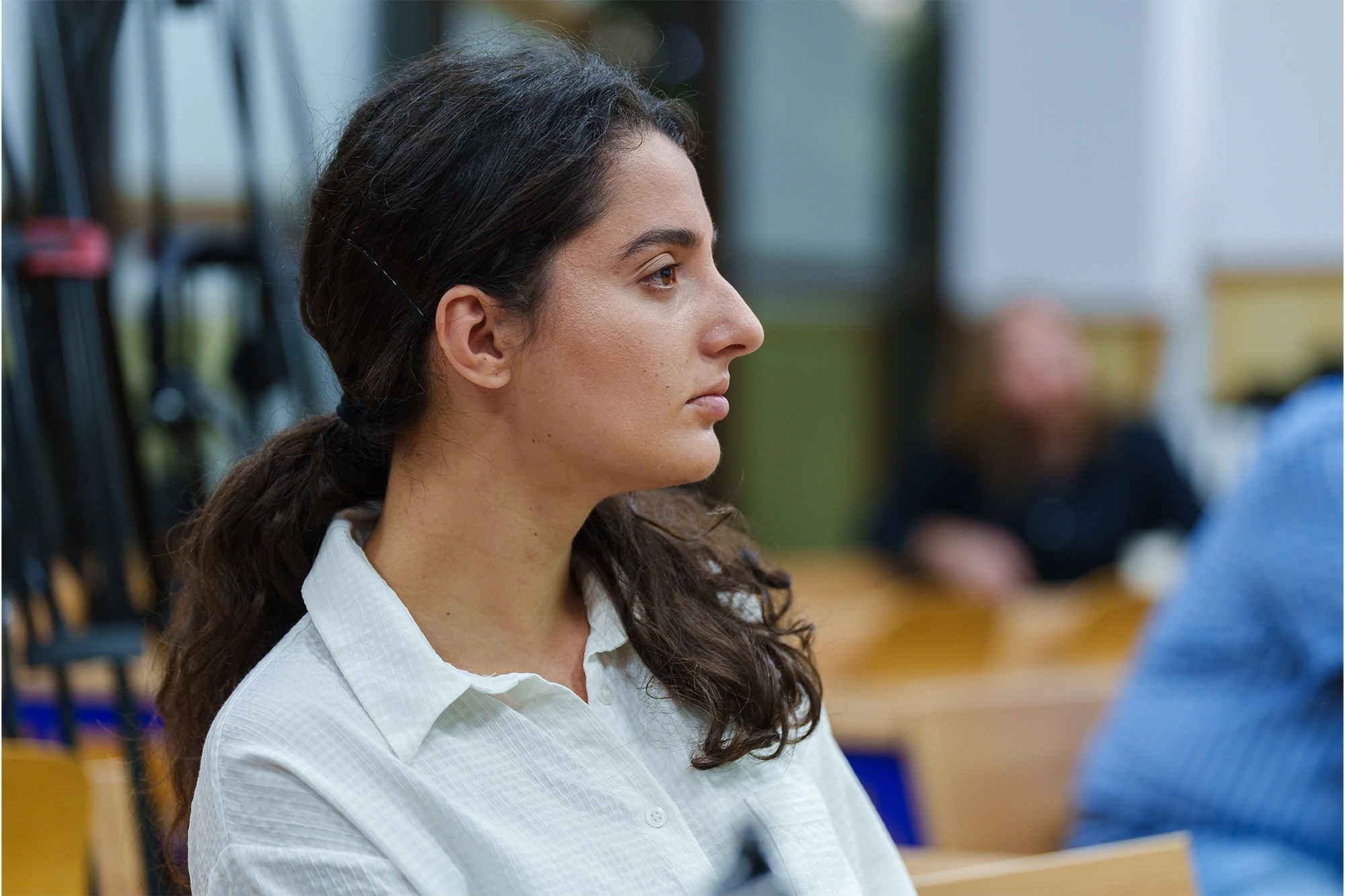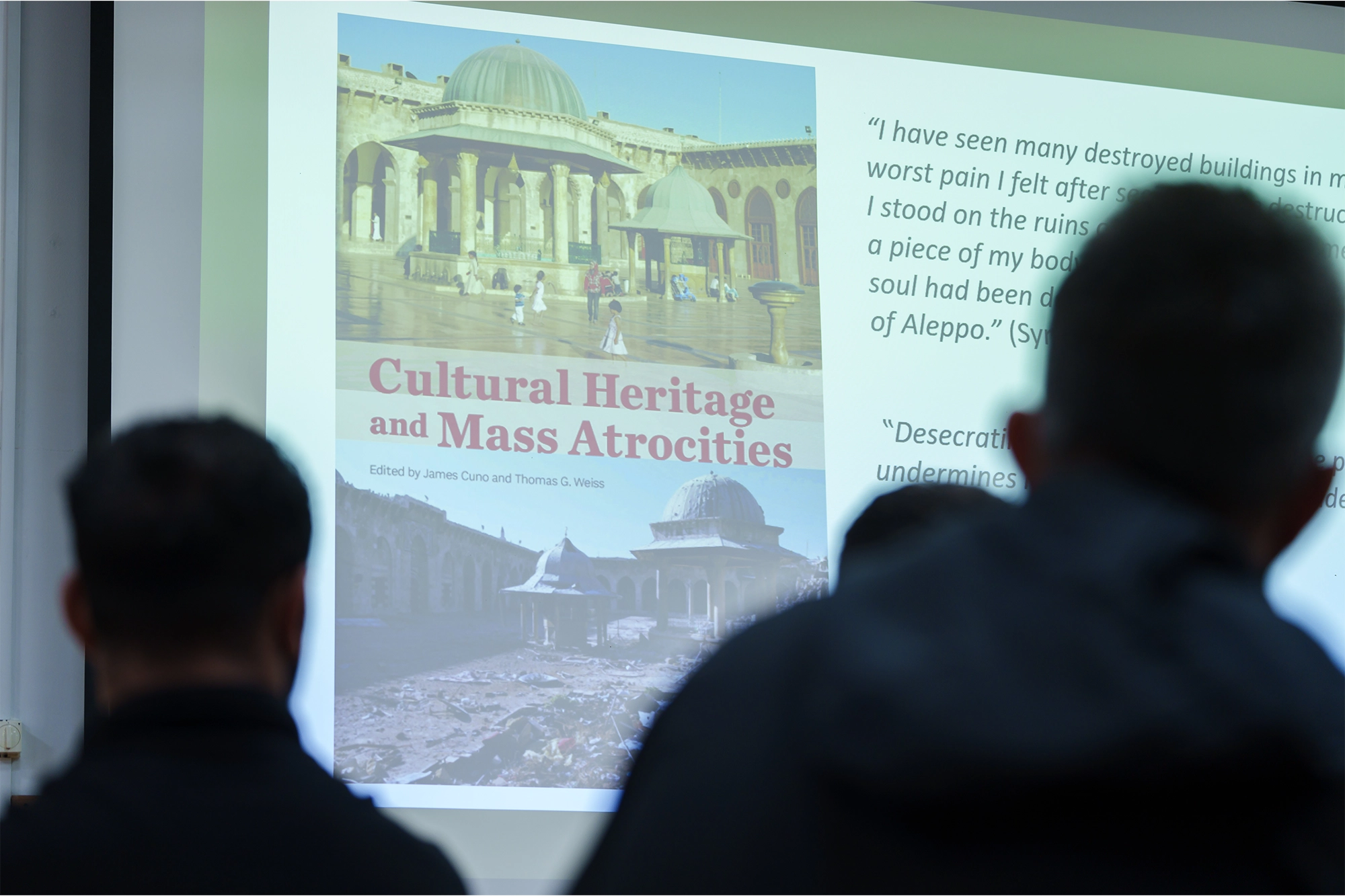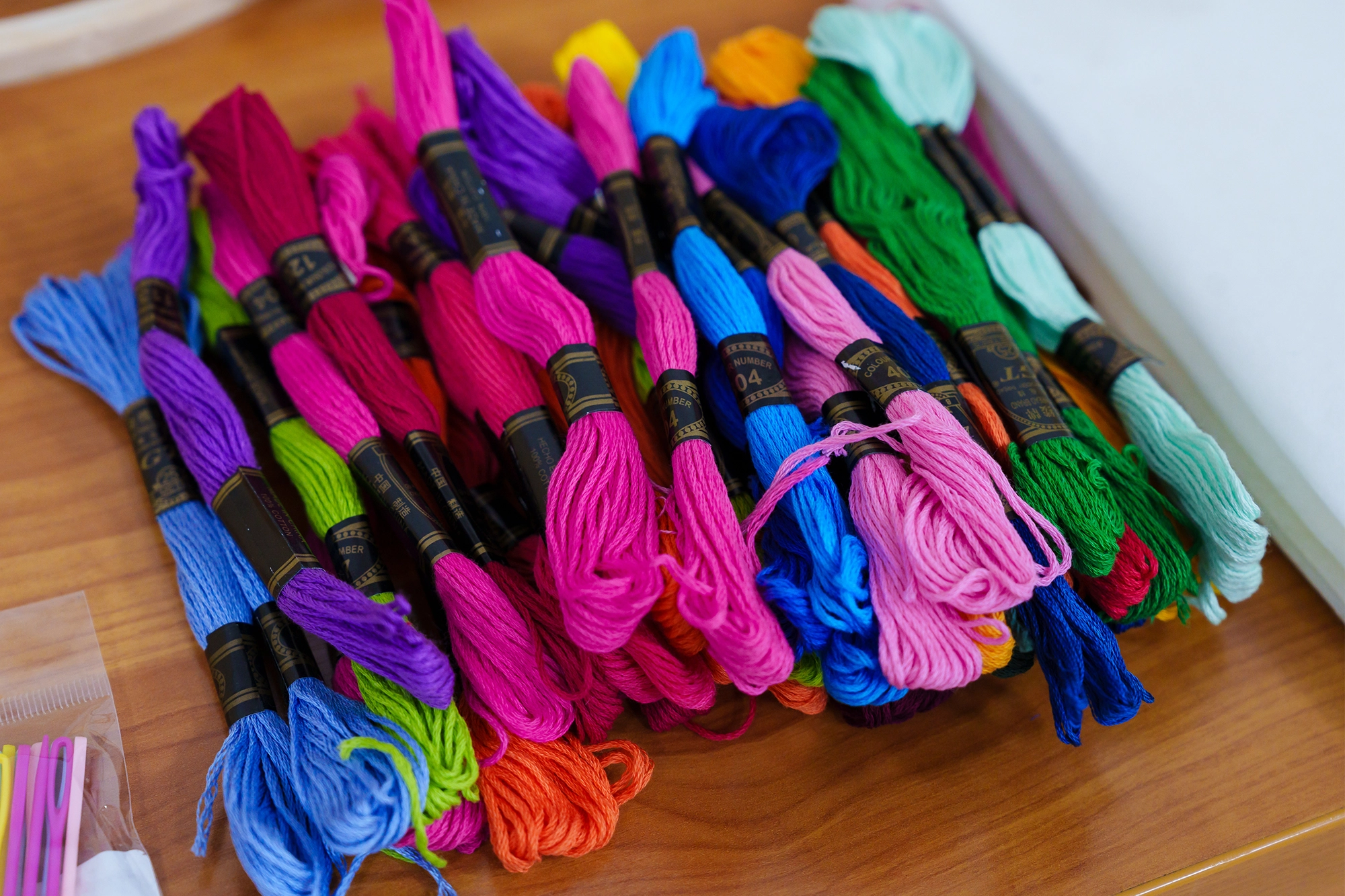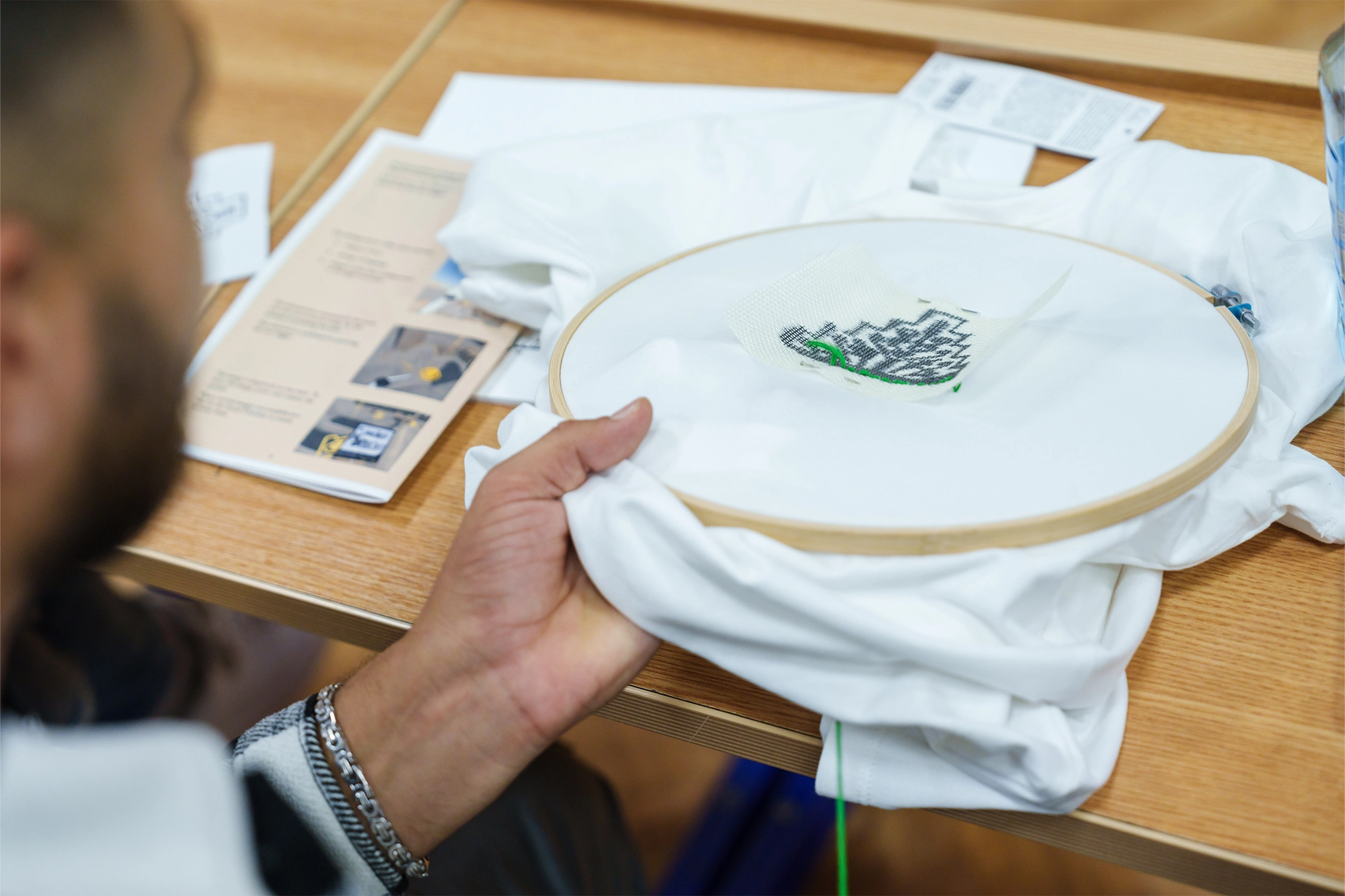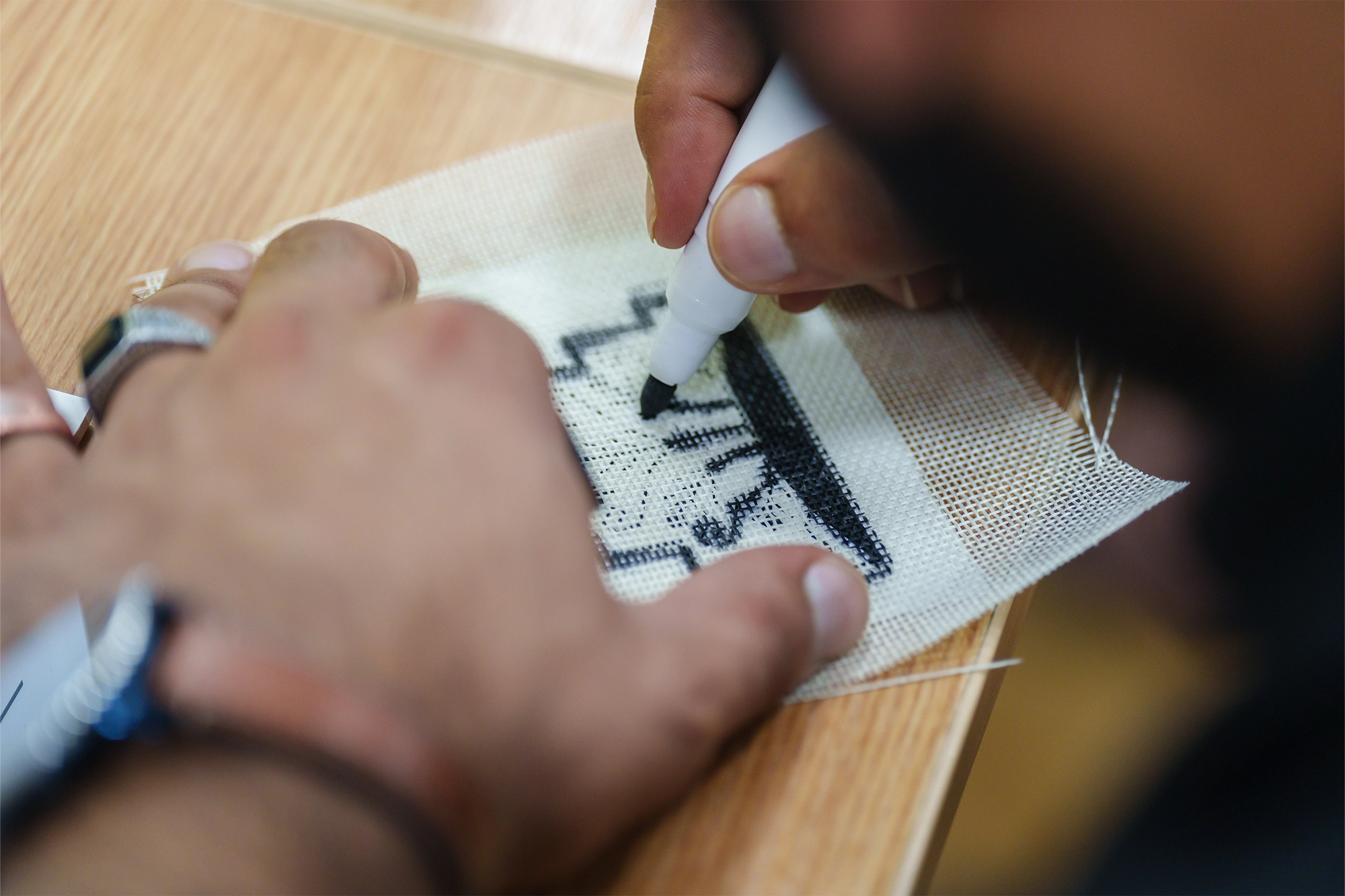On Wednesday, September 17, 2025, the Faculty of Philosophy at the University of Bucharest hosted the CIVIS Open Lab “VERIS – Voices of Palmyra: Engaging (In)tangible Memorial Heritage in Social Innovation for Refugee Inclusion.” The event brought together academics, students, researchers, and members of refugee communities with a shared interest in cultural heritage, migration, and social inclusion.
Organized in partnership with the University of Lausanne, the University of Glasgow, and Jesuit Refugee Service Romania, the Open Lab offered a full day of interactive activities. Participants engaged in virtual reality experiences that reconstructed the ancient city of Palmyra, embroidery workshops, and storytelling sessions where refugees shared their personal journeys.
The opening session featured remarks by Dr. Patrick Michel (University of Lausanne), Dr. Oana Șerban and Dr. Liliana Dumitrache (University of Bucharest), and Dr. Brittnee Leysen (University of Glasgow).
A highlight of the program was the workshop Immersive experiences in traumatic pasts. Visiting Palmyra: the past and the present connected by VR, coordinated by Dr. Patrick Michel.
Refugees had the chance to experience Palmyra in virtual reality – some for the first time, others revisiting a city they once knew but had since been destroyed. “Palmyra allows us to move through space as well as time – from one place to another, and from one era to another, from the Roman period to the Byzantine,” Michel explained.
The project began in 2020, when the first workshops on heritage and inclusion were organized in collaboration with UNDP Syria. Over the following years, activities expanded to Jordan and Syria (2022–2023), Switzerland (2023), Syria again (2024), and in 2025 reached Lebanon, Jordan, and Romania.
Behind the VR experience lies extensive archival digitization work. “The monument may be gone, but the documents remain. Using these resources, we created a database and 3D models in 2017 through what we call post-mortem photogrammetry,” Michel said. The method is “post-mortem” because, unlike traditional photogrammetry that relies on the monument itself, here the models were reconstructed using archival photographs and images taken after the bombing of the temple.
But the project emphasizes that the value of heritage is not found only in data or digital images. Inspired by the Faro Convention (2005), it focuses on the role of communities: “A monument has meaning for people, it’s more than just stone. The true social impact of research comes when we succeed in reconnecting people with their own history”, Michel noted.
Alongside VR, participants also explored heritage through embroidery workshops, reinterpreting motifs inspired by Palmyra’s architecture. “Architectural patterns can be translated onto textiles. Every stitch tells a story of resilience and belonging” , said Michel.
The results reflected both shared designs and individual creativity: some participants, already skilled in traditional embroidery, produced highly precise work, while others experimented with more personal interpretations. All of the pieces will be analyzed from historical, psychological, and philosophical perspectives through collaboration between teams in Lausanne, Bucharest, and Glasgow. In 2026, they will be exhibited at CIVIS Days, alongside a book documenting the project’s experiences.
Dr. Patrick Michel emphasized the importance of culture in human life, especially during times of crisis: “If we think of the pyramid of needs, after food and health comes culture. People cannot live without it. Identity is layered, and our project gives people tools to rediscover their past as a way to build their future.”
Through CIVIS, this Open Lab is more than a standalone academic event –it becomes a platform where research and lived experience meet. On one hand, the workshops give refugees ways to reclaim their identity and express themselves, turning cultural heritage into a living resource. On the other, partner universities gain insights from interdisciplinary research on how culture and science contribute to social inclusion.
In this way, CIVIS creates a shared space where academic and vulnerable communities come together, exchange ideas, and foster intercultural dialogue. “We act for a better future” – this, according to Michel, captures the spirit of the Voices of Palmyra project.



